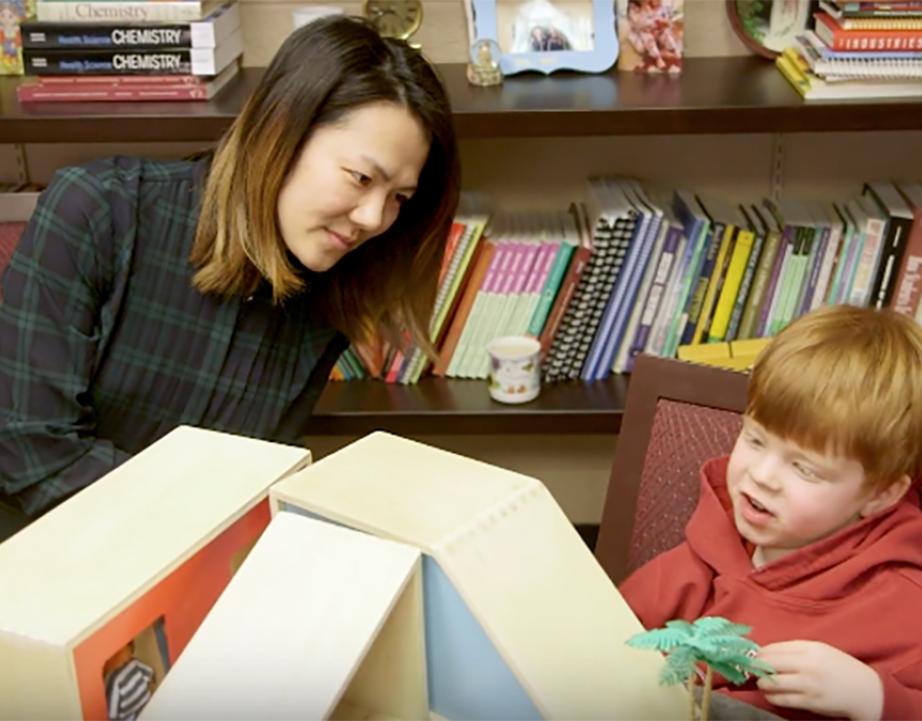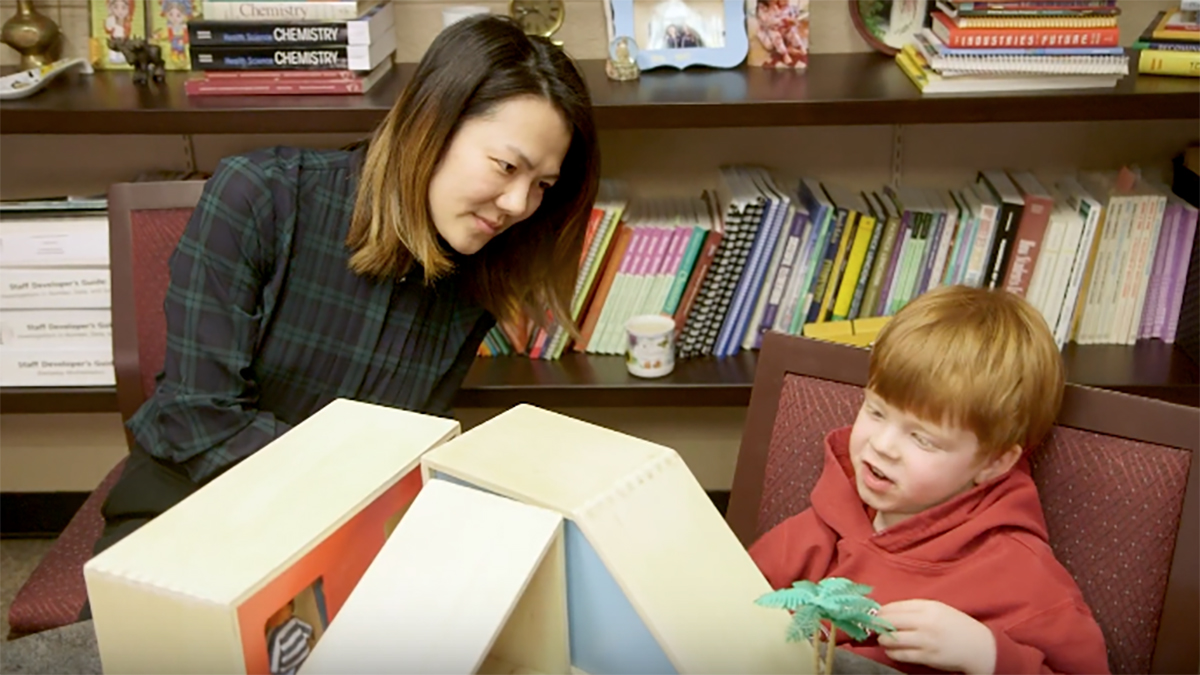Monday, Mar 18, 2019
Dr. Yi-Ju Cheng sees research as filing gap on studies of transition between being a student and an employee
by Keith Fernbach
Dr. Yi-Ju Cheng, an assistant professor in Rider University’s Department of Graduate Education, Leadership, and Counseling, has received a grant from the North Atlantic Region of the Association for Counselor Education and Supervision (NARACES) to study the job search experience of international counseling doctoral students (ICDSs) in the United States.
Her Rider colleagues Juleen Buser, an associate professor, and Terry Pertuit, an assistant professor, assisted with writing the grant proposal and will also be playing a role in conducting the research and writing the final report.
She believes this research will help fill an important gap that up until now has been largely overlooked. “There are studies focusing on international students while they are in their graduate program,” she says, “and there are also studies focusing on faculty members who have an international identity. But there is really no study about the transitional process of their job search experience.”
Cheng says her inspiration to delve into this subject came from her own experiences as an international counseling doctoral student. Originally from Taiwan, she came to the United States in 2008 to study at the University of North Texas, where she earned both a Master of Education and a doctorate in counseling.
“When I graduated from my doctoral program and I was applying for jobs around the United States, there were a lot of things I needed to consider," Cheng says. "It wasn’t just about whether or not I liked the job, but I also had to think about the location where I would be living. Was it diverse enough where I would feel comfortable and fit in? Especially as international students, a lot of times we feel lonely, and if the city lacks diversity it can enhance that feeling.”
In addition to finding the right cultural fit, Cheng says bureaucratic obstacles can represent the biggest challenge, and even limit the career choices available to international counseling students.
“Not all work settings will provide working visas,” she says. “That’s why when I was looking for a job, I limited my options to academia, because most schools are willing to support your immigration status and your working visa process. But for some people who want to work in clinical settings or private practice, it’s not that easy. It’s nearly impossible for them to be able to legally work in the United States with that immigration status. Even after spending so many years getting our degrees and putting in all the hard work, the door’s not completely open for us international students.”
Additional factors that can adversely affect the experiences of ICDSs may include having limited English proficiency, difficulty assimilating into a new culture and facing discriminatory attitudes from peers, clients, supervisors and instructors.
Cheng hopes that through this study she will be better able to advocate for international students by providing recommendations for culturally responsive support and mentorship of ICDSs’ job search processes on personal, professional and institutional levels.
“Hopefully by doing this research, we can look into this more closely and think about how counselor educators, supervisors and advisors can be better equipped to help their international students,” she says, adding that ways to do so could include providing them with concrete information and resources, as well as creating a network or forum to discuss common challenges.
Cheng and her colleagues are currently in the process of recruiting participants for the study. Their goal is to interview 12 students who meet the following criteria: They must identify as international students; be on an F-1 visa and not possess dual citizenship; be in the last year of completing their doctoral degree in a program that’s accredited by the Council for Accreditation of Counseling and Related Educational Programs (CACREP) and actively seeking postgraduate employment in the U.S.; and their first language is not English.
Participants will be asked open-ended questions, such as, “What are your thoughts and emotions about the job search process? What challenges do you encounter? And what strengths do you perceive?” Interviews may also go in unplanned directions, depending on the unique experiences and stories of participants. Cheng's goal is to complete the study by the end of 2019.


